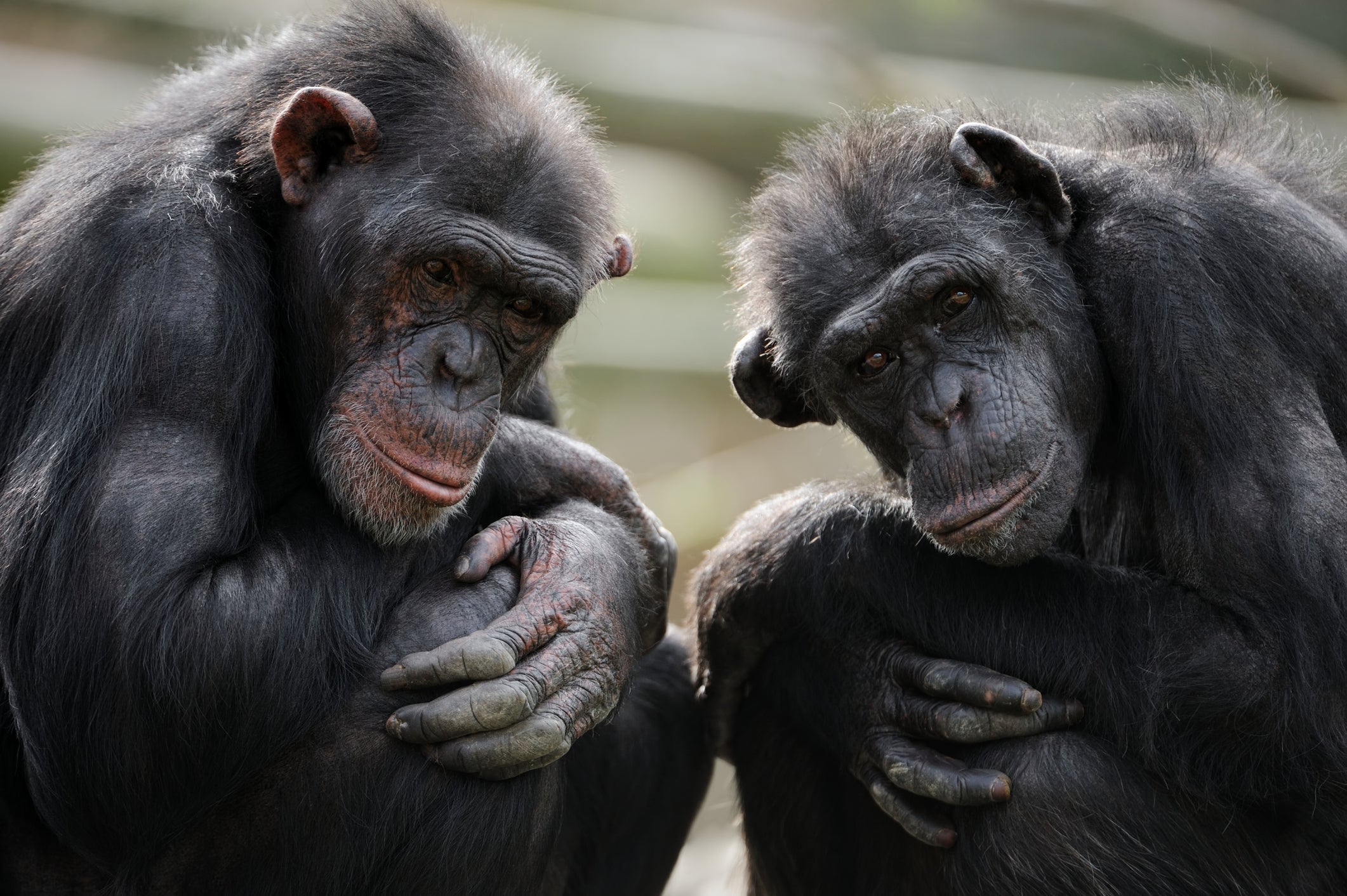ARTICLE AD BOX
Chimpanzees in Uganda have been observed using plants to treat open wounds and tend to each other's injuries.
University of Oxford scientists, working with a local team in the Budongo Forest, filmed and recorded the animals using plants for first aid.
The footage shows the animals licking and dabbing leaves on wounds.
Researchers say the footage adds to a growing body of evidence that primates, including chimps, orangutans and gorillas, use natural medicines in a number of ways to stay healthy in the wild.
Dr Elodie Freymann of the University of Oxford, first author of the article in Frontiers in Ecology and Evolution, said: “Chimpanzee wound care encompasses several techniques: direct wound licking, which removes debris and potentially applies antimicrobial compounds in saliva; finger licking followed by wound pressing; leaf-dabbing; and chewing plant materials and applying them directly to wounds.”

Researchers studied two communities of chimpanzees in the Budongo Forest - Sonso and Waibira.
Like all chimpanzees, members of these communities are vulnerable to injuries, whether caused by fights, accidents, or snares set by humans. About 40 per cent of all primates in Sonso have been seen with snare injuries.
The researchers spent four months observing each community, as well as drawing on video evidence from the Great Ape Dictionary database, logbooks containing decades of observational data, and a survey of other scientists who had witnessed chimpanzees treating illness or injury.
Logbooks dating back to the 1990s show stories of leaf-dabbing on injuries, and chimps helping others to remove snares from their limbs.
One note even describes a chimpanzee using leaves to wipe itself after defecating.
“We also documented hygiene behaviours, including the cleaning of genitals with leaves after mating and wiping the anus with leaves after defecation - practices that may help prevent infections,” Dr Freymann said.
Scientists identified some of the plants used by the animals, and tests revealed most had antibacterial properties that could improve wound healing.
Researchers also recorded 12 injuries in Sonso, all of which were likely caused by within-group conflicts. In Waibira, five chimpanzees were injured - one female by a snare, and four males in fights.
There were 41 cases of care recorded, seven of which were caring for others, and 34 cases were self-care.
All chimpanzees mentioned in the data recovered from their wounds, but researchers admit they do not know what the outcome would have been had they not done anything about their injuries.

.jpg?trim=0,50,0,50&width=1200&height=800&crop=1200:800)







 English (US) ·
English (US) ·